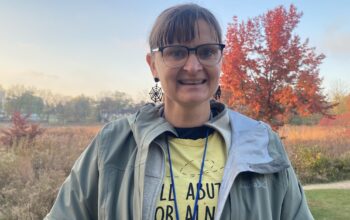Despite pushback, the University of Wisconsin-Madison still plans to start classes for Fall 2021 on September 8, which conflicts with the holiday of Rosh Hashanah, one of the holiest days of the year for the Jewish community.
Rosh Hashanah begins the evening of September 6 this year and ends at sundown on September 8.
UW-Madison is just one of six universities in the University of Wisconsin system which plans to start classes on September 7 or September 8. The other universities doing so are UW-La Crosse, UW-Oshkosh, UW-Parkside, UW-Stout and UW-Superior.
According to the Wisconsin State Journal, local and statewide Jewish leaders sent a letter to interim UW System President Tommy Thompson, the UW Board of Regents and the chancellors of the affected campuses on February 22 asking them to reconsider their plans. Thompson responded in a March 23 letter that while the conflict should have been avoided, "any changes at this late date would have cascading effects on myriad areas from financial aid awards to course schedules."
The importance of Rosh Hashanah
Rosh Hashanah, which literally means “Head of the Year,” starts what is referred to as the “Days of Awe.” This is the time period between Rosh Hashanah and Yom Kippur, the two holiest holidays in the Jewish religion, said Alan Klugman, Executive Director of Jewish Federation of Madison.
“[Rosh Hashanah] is a holiday of gathering [and] the beginning of a period of reflection on one’s life,” said Greg Steinberger, president and CEO of Hillel at the University of Wisconsin-Madison.
As we continue to live through the COVID-19 pandemic, Steinberger emphasized that holidays often have more meaning and heightened importance in many people’s lives.
Klugman expressed frustration that many of the response letters from the university system have mistakenly framed this as an issue solely for the Orthodox community.
“This is an issue for all Jews, regardless of how they affiliate or not,” Klugman said.
Rabbi Mendel Matusof, Director of Chabad at UW-Madison, said that many students--even those that are not very observant--celebrate both Rosh Hashanah and Yom Kippur, which is why it’s almost always a conflict for Jewish students on campus.
“It’s a slap in the face”
Klugman said he feels that starting classes during Rosh Hashanah is very offensive.
“It’s a slap in the face,” Klugman said.
In Madison, the Jewish community consists of about 5,000 full-time residents in a city of over 250,000, which means that many members of the Jewish community “often feel like they’re on the outside to begin with,” Klugman said.
When Steinberger first noticed the conflict on UW-Madison’s academic calendar, he said it was “a deep disappointment and a frustration.” Steinberger said he’s been in communication with UW-Madison leaders since December 2020 in an effort to change the start date of classes, but it’s unclear what actions the university has taken since the issue was brought to their attention.
UW-Madison Chancellor Rebecca Blank maintains that it is too late to change the start date of fall classes but did move the date of university convocation -- a traditional welcome event for new students -- from September 7 to September 3. In addition, the university will notify instructors of the conflict, asking them to make class materials available online. Finally, the university has created a group for reviewing future academic calendars to avoid similar issues.
However, Klugman says that this response is not sufficient, and he is not impressed by the promise of reviewing future calendars.
“At some point, there has to be [an] admission that this is wrong, and it has to change and not be put off to the next time. That’s a cop out,” Klugman said.
As several Jewish leaders said in their letter to Thompson, a similar conflict occurred back in 1994, when Rosh Hashanah took place on September 6. However, the difference is that in 1994, the Thursday before Labor Day fell on September 1, and Wisconsin state law prohibits schools from beginning classes on September 1. Nevertheless, a law was proposed -- and passed -- which allowed for the UW System to begin classes on September 1, 1994 in order to avoid the conflict with Rosh Hashanah. This year, there is the opportunity to move classes to September 2, 3 or 9 without running into the September 1 law.
Furthermore, as Steinberger pointed out, the COVID-19 pandemic has proved the need to be flexible. In September, the university changed the spring academic calendar, cancelling spring break and shifting instruction to begin on January 25, six days later than previously scheduled.
As Klugman said, “The notion that it’s too difficult to change, I don’t buy that.”
Religious conflicts not new
Matusof, however, said he understands why the university is not changing the start date of classes, and he recognizes that it was an oversight on the part of the university.
“Rosh Hashanah is not on everyone’s calendar--I get that,” Matusof said.
The bigger issue, Matusof said, is being more accommodating for religious observances.
“To me, the most significant thing that needs to happen on campus is not unique to this year, and that is that, in general, professors need to be significantly more accommodating for students who are taking off for religious observance,” Matusof said.
Klugman said that 11 years ago, when his daughter was a student at the University of Wisconsin-Madison, she often had to go to classes on high holidays in order to keep up with her grades, and he feels that not much has changed since then.
Abigail Steinberg, a senior at UW-Madison, said her experience with Jewish holidays as a UW student has been a “mixed bag,” as some professors have been accommodating and some have not.
Steinberg said she had a negative experience with a professor that required students to write 10-page papers in order to make up any absences. Therefore, Steinberg decided not to attend synagogue or travel home for Yom Kippur, and ended up attending class while fasting.
According to Steinberg, the professor had not created a welcoming environment, therefore she felt uncomfortable asking for an accomodation. Steinberg expressed frustration that Jewish students even have to ask for accommodations or extensions, as it requires extra effort on their part.
“An accommodation or an extension is not the same thing as being structurally catered to,” Steinberg said.
Matusof echoed this, saying that while there is technically a policy in place to deal with religious observations he has “had to many times be there for students who are having challenges with their professors.”
Larger implications for religious minorities
The implications of this issue affect more than just the Jewish community, Klugman said.
“Today this is a Jewish issue, and tomorrow it could be an issue for another religion, and that’s why this has to be resolved and just not shoved aside till the next time it happens,” Klugman said.
Steinberger said while he appreciates the university’s recognition of the problem, there has to be some kind of structural change to ensure a more welcoming campus for students of diverse backgrounds.
“I would like to see the University of Wisconsin lead other major public institutions in finding a better way to handle this situation,” Steinberger said.
One suggestion Steinberger has is creating a role at the university to specifically handle religious observances and other cultural conflicts.
“Nobody should have to make the choice between going to classes or celebrating [their] holiday,” Klugman said.




